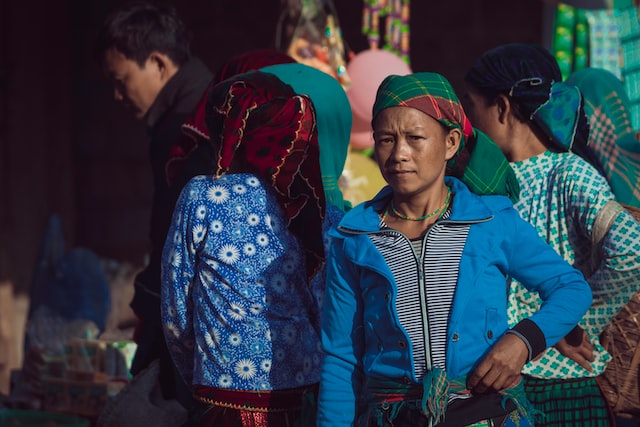Low Income/Poverty
The groups in society that face harsh financial conditions often have to allocate more time to activities that directly contribute to their survival activities. For this demography of society, basic needs come first. It can be challenging for citizens to participate without adequate shelter, food and healthcare. These factors lead low-income citizens to have limited interest in the results of political action.
Education
Low levels of political education can often lead to poor political participation. Understanding the governance system and the importance of involvement in politics can lead to higher levels of participation. This knowledge is imparted through civil education, providing the required information and expertise on the political systems in the country. This type of education can come in many forms, such as through school, political party campaigns, social media and parasocial.
Social isolation
Marginalized groups that experience isolation from the mainstream political network often display apathy toward political participation. Isolation can result from numerous avenues; however, low representation in government offices is the most common.
Personal factors
Individuals with low self-confidence may struggle to find the motivation to participate in political activities. These events often require a degree of outspokenness that is useful for persuading others to join your cause. The ability to speak in public to numerous citizens often scares away introverted citizens. It is also true that voting can take the entire day and some groups of people aren’t willing to spend time waiting. This problem is exacerbated by a lack of belief in the political process results.

Stigma and Discrimination
Stigma can cause a dark cloud over political activities as the biases of the majority groups often find their way to the fore. Minority groups may fear the prejudices, fears and lack of tolerance towards them can lead to conflict. Violence is not uncommon during political activities. Groups like people with disabilities may avoid these areas, hindering their political participation.
Political Activities are not Disability-Friendly
Some venues for election activities are rural and rarely have the modern access ramps required to assist disabled individuals. These barriers make it demotivating for people with disabilities to participate in political activities. The constitution often provides for all disabilities to be catered for; however, the assisted voting process can easily be manipulated.
Lack of Representation
An equally representative lawmaking body provides role models for the minority groups in society. Without this necessary representation and role models, the groups feel there is no chance of succeeding in politics. Numerous countries or communities feel underrepresented; for example, there are few examples of people with disabilities in senior governmental positions.
Legal barriers
Some groups in society are legally not allowed to vote. An example is people with mental disabilities not being allowed to vote.
Political Factors Influencing Political Participation
Disability as a political issue
The social barriers that people with disabilities experience are often manufactured. These disadvantages exist because governments and lawmakers fail to address some of their main problems. Citizens who live with disabilities and their family members often experience discrimination in many aspects of society. The political sphere often overlooks the needs of people with disabilities, meaning resources allocated to them are limited. These factors make the political sphere less inclusive for these groups because mainstream political programmes are not disability-specific. The political climate must address disability issues to encourage these individuals to participate. These measures are implemented through policy. In some countries, even with appropriate policy in place, the implementation of it is often poorly executed.
Government Structure
For citizens to want to participate in politics and serve in government, they require a practical understanding of how the government functions. A complex system of political structures and processes can demotivate citizens from participating. Without the knowledge of how power flows, it can be difficult for advocates to build alliances and influence change with help from the citizenry. Understanding the three branches of government and their administrative areas is key to fostering the renewal of the democratically elected legislative bodies.

Political Quotas
A diverse population often requires political representation that aligns with their demographics. To stop a majority from standing alone in the lawmaking chambers, many countries have reserved a percentage of seats for marginalized groups. This practice helps all groups to achieve a seat on elected bodies at the local, regional and national levels. These quotas are found at many policy levels and can also include a percentage of government jobs. These quotas were designed with good intentions; however, they can be demoralizing and are known as positive discrimination. Women, ethnic minorities, and people with disabilities compete against each other for a tiny proportion of available positions.
How to Improve Political Participation
- To get the citizens involved, it is vital to identify key legislation and policies that must be addressed to ensure marginalized groups can participate. An approach related to disability and the development sectors is key to promoting inclusive political participation.
- Providing education for the citizens on the role of the government and the responsibilities of each department. Knowledge of the political structures helps citizens to participate at the local level and influence decision-making.
- The visible presence of political representatives in the communities is good for boosting political morale. This action will allow the community to meet their representatives in government regularly. Political participation can be nonpartisan to a particular party or power base but can be used to advocate for specific issues. This tactic is valid regardless of the personal affiliations in the community.







































